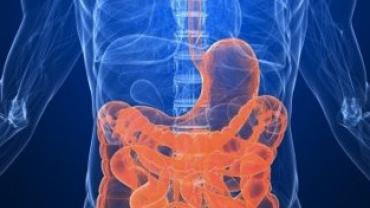
In medical and nutrition research there are always shiny and new concepts to catch practitioners’ eyes. Adrenal fatigue small intestinal bacterial overgrowth (SIBO) leptin resistance fecal transplants…there’s certainly no shortage of avenues to explore when patients and clients have stubborn issues that don’t respond to the usual protocols. And while new research in these areas is fascinating and quite promising sometimes it’s all too easy to get mesmerized by it and inadvertently overlook some of the much simpler more basic therapeutic strategies.
There is a growing acknowledgement even among mainstream medicine and dietetics that decades of nutritional guidelines that demonized dietary fat in general and saturated fat in particular have resulted in the current epidemic of cardio-metabolic illness now facing the industrialized world. However unintended this consequence may have been increasing evidence points to the vilification of saturated fat and cholesterol as having encouraged people to consume far more grain-based carbohydrates and high omega-6 vegetable and seed oils in their place.
With the turning of this tide more practitioners are coming to embrace diets that are lower in carbohydrate and higher in fat for themselves as well as their patients. And while many people will experience impressive weight loss and dramatic improvements in health biomarkers in a relatively short amount of time others may not see the positive changes they were hoping for quite so quickly. In cases like this sometimes getting back to the very basics focusing on something as routine as digestion can be the missing piece of the puzzle. This may be especially true when a patient is transitioning from a long-term low-fat diet to an increased fat intake.
There’s no point in someone eating a higher-fat diet if their digestive function isn’t firing on all cylinders. With regard to the proper breakdown of fats ensuring proper bile production and flow and adequate pancreatic lipase are key. Signs and symptoms of fat maldigestion may include diarrhea abdominal cramps and weight loss; the most telling sign is steatorrhea. Downstream effects from long-term maldigestion and poor absorption of fats may include subclinical deficiencies in the fat-soluble vitamins and essential fatty acids.
A number of factors can bring about pancreatic exocrine insufficiency (PEI). Chronic pancreatitis cystic fibrosis and obstruction of the main pancreatic duct are some of the more severe causes but causes more likely to be encountered in the everyday functional medicine practice include celiac disease Crohn’s disease and other pathologies that compromise proper hormonal and cellular signaling in the small intestine.
Supplemental ox bile and pancrelipase may be beneficial in helping patients transition to a higher fat intake. Ox bile may be especially important for individuals who have had their gallbladder removed. Although the liver continues to produce and release bile loss of the gallbladder may mean that bile secretion is not appropriately matched to the amount of fat in a meal resulting in a functional deficiency and inadequate emulsification of fats. Others who may benefit from supplementation with ox bile are patients taking cholesterol lowering medication specifically those that inhibit the endogenous synthesis of cholesterol. With cholesterol serving as a primary building block for the deoxycholic and lithochlic acids in bile salts disruption of cholesterol synthesis may result in insufficient substrates for producing adequate amounts of bile salts.
Restriction of fat intake has been historically recommended for those with pancreatic insufficiency. More recent research however indicates that supplemental pancrelipase may be a better strategy for the long-term. Supplementing with pancreatic digestive enzymes can provide relief from unpleasant symptoms prevent morbidities associated with maldigestion and improve quality of life. Patients with cystic fibrosis and chronic pancreatitis have shown significant increases in fat absorption upon supplementation with pancreatic enzymes. Enzyme supplementation has also reduced the frequency and improved the consistency of bowel movements in individuals with celiac disease and irritable bowel syndrome.
Diets that are higher in natural fats and lower in refined and high-glycemic carbohydrates may be beneficial for a number of health conditions. If patients experience digestive distress upon transitioning to such a diet they may benefit from a little outside help in properly breaking down and absorbing fat.